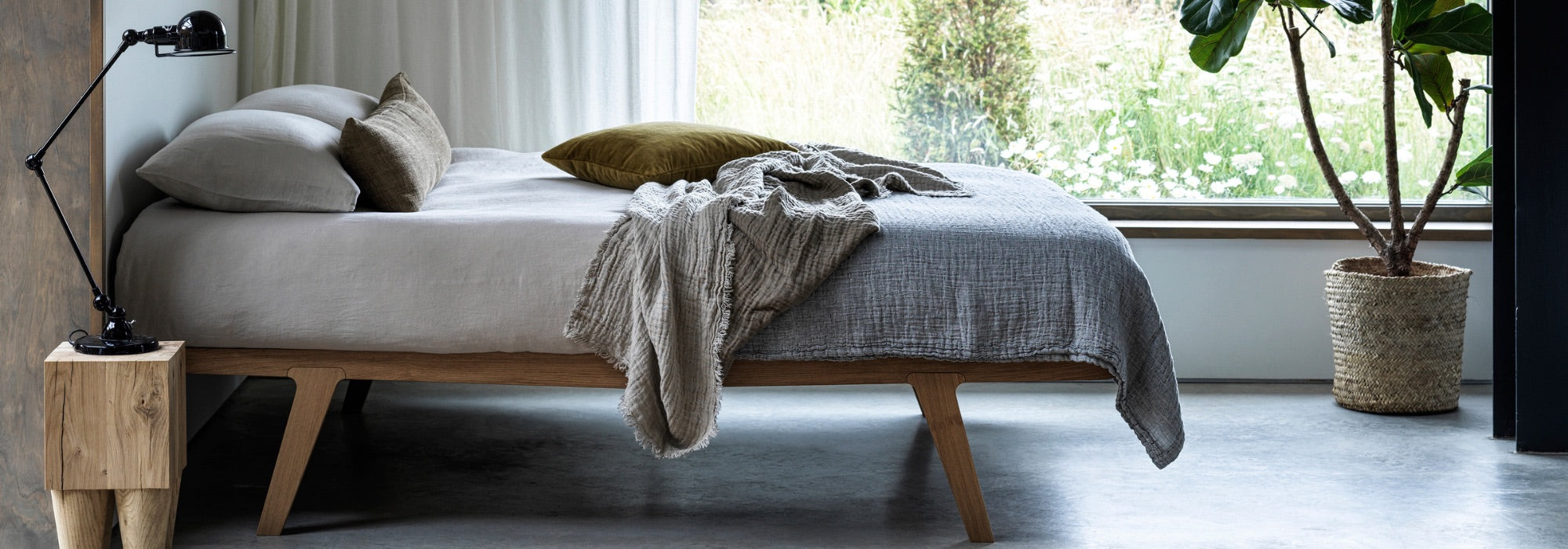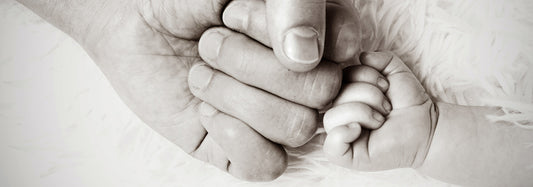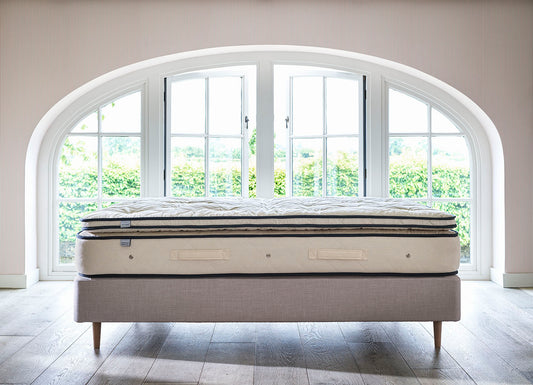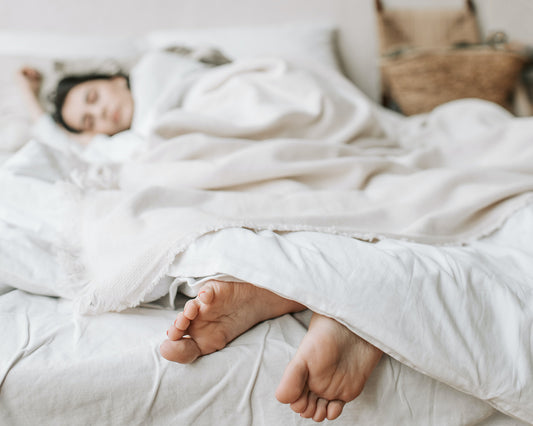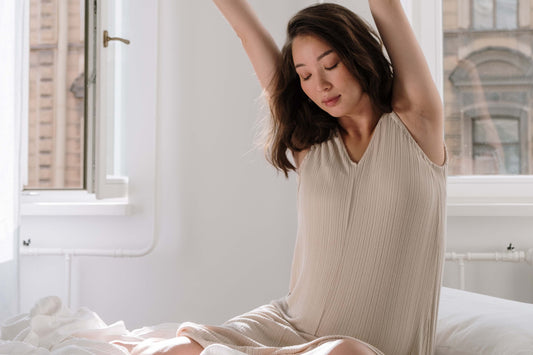With long days and late nights, it can be hard to get the right amount of sleep during the warm seasons and, with the hot weather causing us to overheat, it can become difficult for our bodies to acclimatise to the temperature.
During hot spells our bodies can struggle to produce adequate levels of melatonin - the hormone that helps us sleep by dropping our core body temperature - making it all the more difficult to get the rest we need.
From the stuffier weather to prolonged hours of natural light, finding the right conditions for falling asleep can often seem like a challenge during the summertime. If you’re wondering how to sleep in hot weather, then you’re in luck - we’ve put together some simple ways that you can adapt your bedroom and your bedtime behaviours to get a better night’s sleep.
Lowering your core body temperature
Getting a good night’s sleep in the hot weather is all about lowering your core body temperature, which comes from a combination of environmental factors and behavioural changes. Our sleep expert Christabel Majendie explains why this is so important for sleeping in hot weather:
“In order to drop off to sleep, our core body temperature has to drop. If the room temperature is too high, it is difficult for the body to cool down, which in turn can lead to issues with falling asleep.
In addition, hot overnight conditions make it harder to get into the stage of deep sleep, so the night may be more fragmented with more awakenings as a result.
It’s best to sleep in a cool room with a temperature range of 16 to 20 degrees Celsius so if you have air conditioning this is the ideal setting”.
Treat yourself to some summer bedding
If you are struggling to sleep on the warmer nights, then the first place you should look to make some changes is your bedding. Organic, breathable materials help regulate your body temperature, making bedtime a lot more comfortable and allowing you to sleep better for longer. Have a look at our natural bedding. Switch out thick duvets
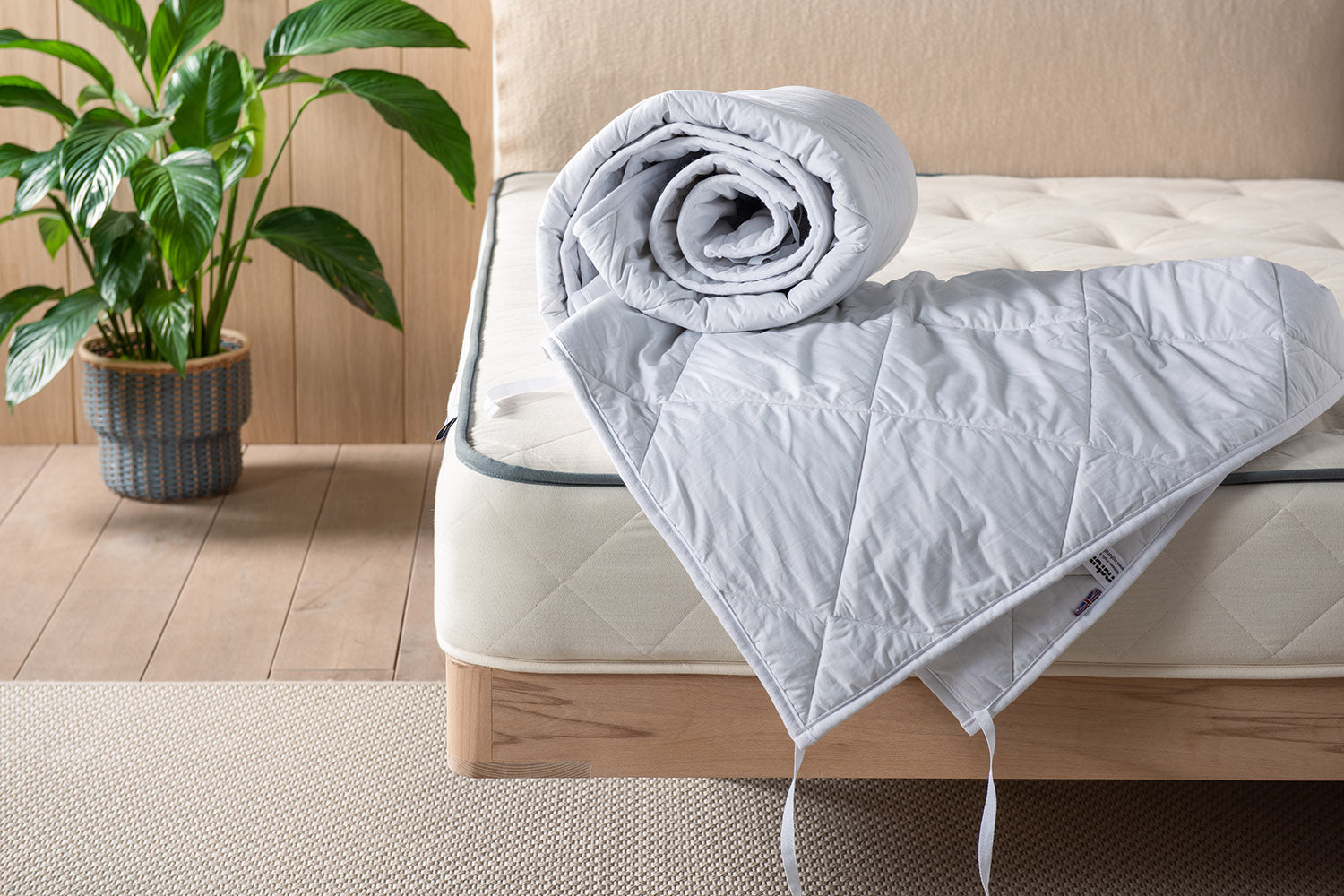
Sleep experts suggest that the optimum temperature for a good night’s sleep is between 16°C and 18°C, so as seasons change and the temperatures rise, the need for choosing different bedding in the summertime will come as no surprise.
Thick, winter tog duvets will keep you warm and toasty throughout the cooler months, but as the weather warms up, opting for thinner 1.5 to 4.5 tog duvets will mean that you can get a good night’s sleep without overheating in the humid climate.
Treat yourself to a mattress topper
The summer brings some of the most challenging conditions for getting a good night’s sleep, and that means there’s never been a better time to ensure that your bed is giving you all the support you need.
If you’re not yet ready to part with your ageing mattress, adding an extra layer of luxury to your bed with a mattress topper could give you the additional level of comfort that you’ve been dreaming of - and by opting for hypo-allergenic and naturally breathable materials, you can sleep easy with your high-quality mattress topper.
Prepare your sleeping space for the hot weather
As well as your bedding, you should look to make some changes to your bedroom in order to sleep better in hot weather.
Prepare your room
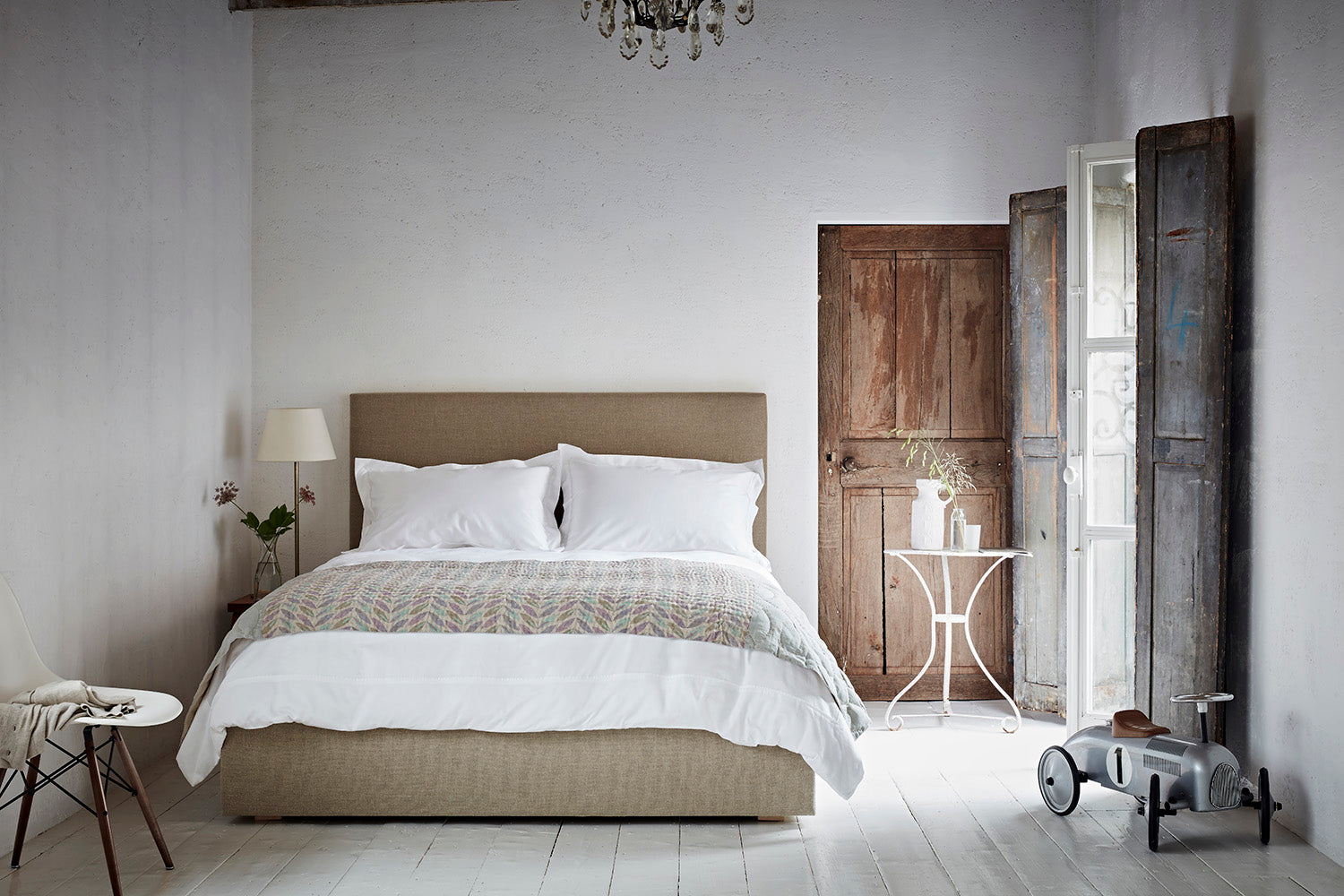
Keep curtains or blinds drawn when the temperature starts to rise in the day and only open them in the evening as it cools.
At this time, open the windows to allow cool air to come into the bedroom before sleep. If it is quiet and safe, sleep with a window open. Keep the bedroom door open to let air circulate.
Stow away heavy floor rugs and furnishings
Lowering the overall temperature of the room is one of the most effective ways in which you can encourage sleep, and that means by removing added insulation from your bedroom, you could improve your chances of getting some much-needed slumber in the summertime.
Let the room breathe by stripping back heavy rugs to expose your wooden flooring, and by stowing away decorative throws and wall hangings for the season too. This way, you’ll be able to settle down for the night in a significantly more comfortable climate.
Invest in blackout blinds
With experts suggesting that our productivity levels go hand-in-hand with our quality of sleep, ensuring that we’re getting a good night’s sleep throughout the year is a must.
Avoiding a disruptive sleeping routine means that we can make the most out of the following day, and while many of us attempt to stick to a similar bedtime throughout the year, the late night and early morning natural light that is synonymous with summertime can often affect our biological clocks.
Blackout curtains can help to overcome this issue by serving as a barrier to the sunlight - so whatever the time of day, by opting for sleep-friendly blinds, your body can get the rest that it needs to stay fully functional.
Use a fan
Sleeping with a fan on can help if the noise doesn’t bother your sleep and distract you from falling asleep in the first place.
Position it a few metres away from you and avoid having it blowing directly onto your face. Don't forget to ensure your fan is dust-free when taken out of winter storage for the first time!
Changing your bedtime behaviour for sleeping in hot weather
Getting to sleep in the hot weather is about more than just upgrading your sleep space, we also need to change our bedtime behaviours to lower our core body temperature.
Dress appropriately
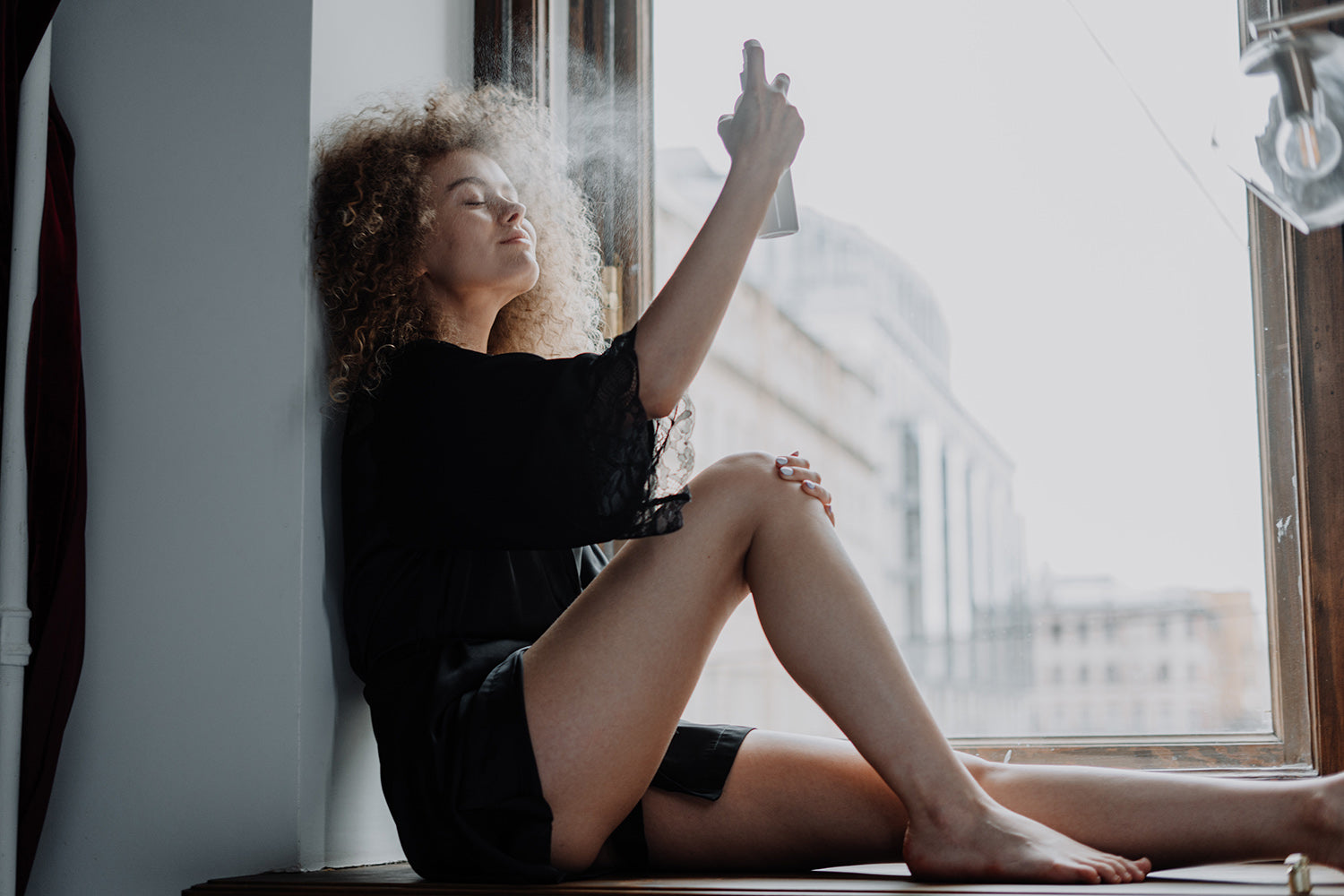
Reduce your bedclothes and even consider sleeping in the nude for a better night’s sleep in the heat. Bedding made from natural fibres is also better as it is breathable and is better for regulating body temperature.
Lower your core temperature
Having a cool shower before bed can help to reduce body temperature before sleeping in hot weather.
A small bowl of water and a flannel can be helpful to wipe over your face to cool down during the night. Other tips are to fill a water bottle with ice and water to cool you down in bed. You can also try putting a pair of socks in the freezer to put on to cool your feet.
Stay hydrated
Make sure you drink enough water in the day to stay hydrated but don’t drink large quantities of fluid before bed. Have a glass of water by the bed to sip if you wake thirsty.
Be aware of what you drink as people tend to drink more fizzy drinks and alcohol when it’s hot. Caffeinated soft drinks are also best to avoid late in the afternoon and evening as they can suppress sleepiness, and whilst alcohol might help you to fall asleep initially, it can lead to dehydration and impact the quality of your sleep.
Don't Panic!
Above all, if you can’t sleep, try not to worry about it too much, as any stress can make the problem worse. If you can’t drop off, try not to obsess about it, and instead try to focus your mind on something that doesn’t cause you stress, or if you really can’t get your mind off your inability to sleep, try a screen-less activity to distract you and tire you out, such as reading a book.
To better sleep in hot weather, you need to look at your bedding, your bedroom, and your bedtime behaviours to see if anything can be improved upon. Getting a good night’s sleep is essential for those of us trying to function at full power - and by adapting your bedroom to suit the season, you’ll have a better chance of achieving this.

